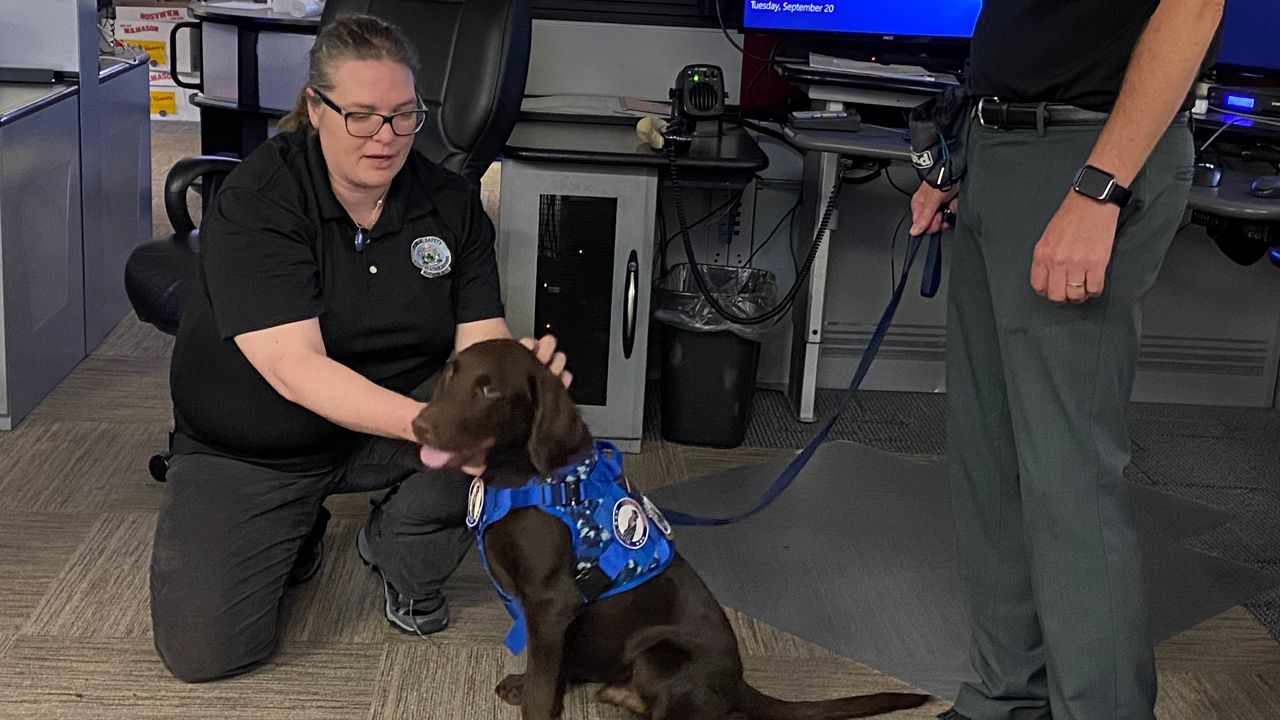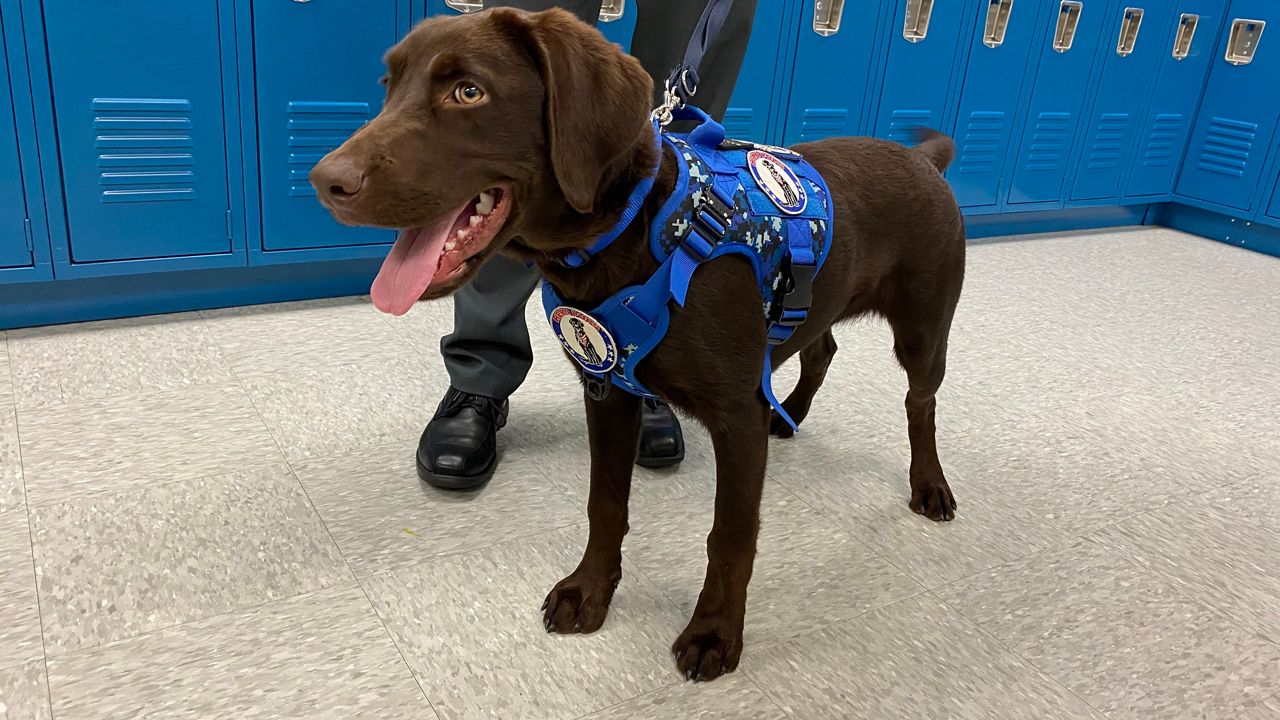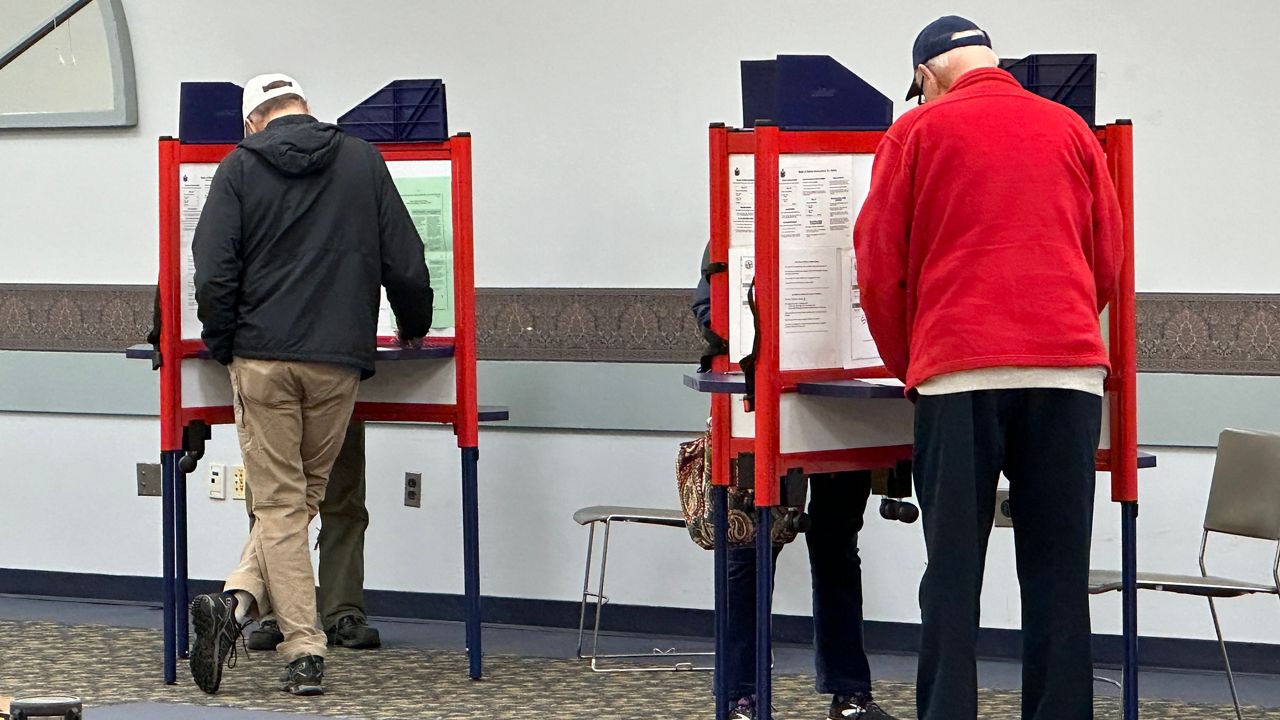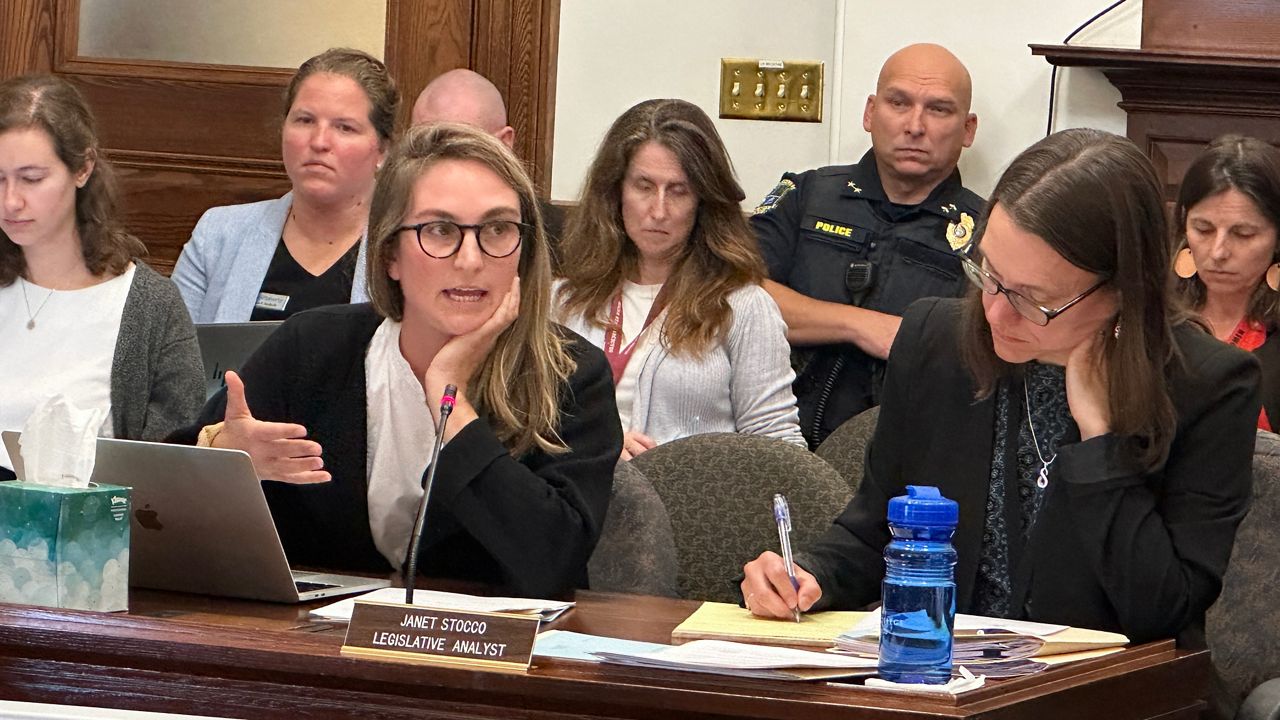Baxter, a 5-month-old chocolate lab, walked into the dimly lit emergency dispatch center in Augusta on Tuesday like he owned the place.
He looked around. Smelled the trash can. And hoped to find someone who wanted to pet him, maybe even someone who needed a little boost after a difficult call.
Someone like Lauren Carter, an emergency communications specialist, who remembers a time pre-pandemic when another dog briefly visited her workplace to provide some stress relief. Now she’s looking forward to building a relationship with Baxter, once he completes his training and can be on hand regularly.
“We cover 11 counties of central and southern Maine so we roll from emergency to emergency,” Carter said. “Every single call is something different. The ability to have the comfort of knowing that Baxter is here with you will be huge when we try to be able to manage our own stress.”

The Maine Department of Public Safety introduced Baxter, the state’s first comfort dog devoted to emergency dispatch centers, to the media on Tuesday. With cameras rolling and tall humans standing around him, he kept his green eyes glued to his handler Brodie Hinckley, director of the Maine Bureau of Emergency Communications.
After all, Hinckley had a pouch full of kibble from which he generously shared treats. While the humans around him talked, Baxter tried very hard to sit still. But when a television camera was lowered to the floor, Baxter headed over to see what was going on, quickly moving nose-first toward the lens.
That’s part of Baxter’s silly side, explained Laura Barker of Hero Pups, a New Hampshire based nonprofit that trains and pairs dogs with veterans and first responders. AT&T, which has a nationwide effort to support first responder health and wellness, paid for his training,
“Baxter has a silly little nature,” Barker said. “That’s the light and the aura in the dispatch room when he comes to visit.”
Unlike firefighters or police officers who might be able to get a break while at a stressful scene, dispatchers can’t walk away, Hinckley said.
“The dispatcher takes another call,” he said. “Just taking call after call after call. If they have a bad call, they can’t step out of the room and take a break, they have to answer the next call. Having Baxter in the room is going to be a huge benefit for everybody there.”
There’s science to back up the benefits of having a dog like Baxter around, said Allegra Hirsh-Wright, a licensed clinical social worker who specializes in trauma informed care with Maine Behavioral Healthcare in Portland.
That’s because research has shown that cats and dogs help humans release oxytocin, a happy hormone that helps combat the stress hormone cortisol.
“When we connect with them physically, the animal and us get a shot of oxytocin,” Hirsh-Wright said.
And then there’s the simple comfort of knowing that we are not alone in our pain, she said.
“In general, we know animals are incredible at unconditional love and being able to read when we need a little extra love and a little extra comfort,” she said.







)

